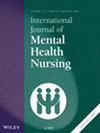Understanding Why People Experiencing a Mental Health Crisis Leave the Emergency Department Before Care: A Qualitative Interpretive Study
Abstract
A number of people experiencing a mental health crisis who present to a hospital emergency department (ED) do not wait (DNW) for assessment or care and leave. This phenomenon is poorly understood and offers an opportunity to enhance quality of care. We sought to understand the characteristics and reasons of those who DNW for assessment or care, and what happens after leaving the ED. We used a semi-structured telephone interview method with open-ended and single choice responses. Participants were recruited from Eastern Health hospitals who had been referred from the ED for specialist mental health care. Respondents (N = 42) tended to be female adults in their 30s, accompanied by another person, and seeking short-term relief and long-term care for a mental health crisis. It became increasingly obvious over time to participants that the cost of waiting was outweighed by the benefit of leaving. A range of factors were identified that took them to this tipping point. Over half reported their condition as having improved and did not seek further care after leaving the ED. Respondents thought a comfortable ‘safe place’ and communication that conveyed respect and reduced uncertainty while waiting would reduce early leaving. There were challenges in engaging a DNW population. Nonetheless this study offers valuable insights into this phenomenon in an ED setting. Many of the expressed views for reducing DNW appear to be reasonable and achievable.

 求助内容:
求助内容: 应助结果提醒方式:
应助结果提醒方式:


